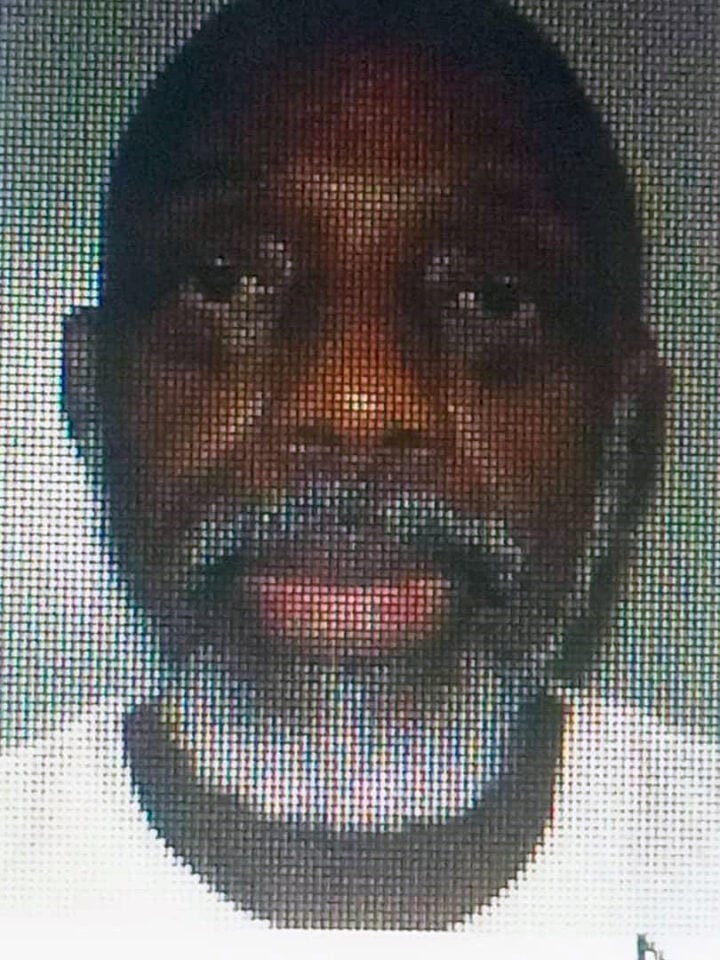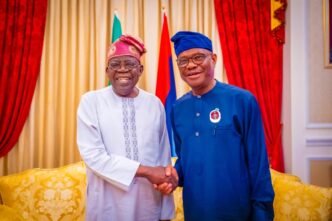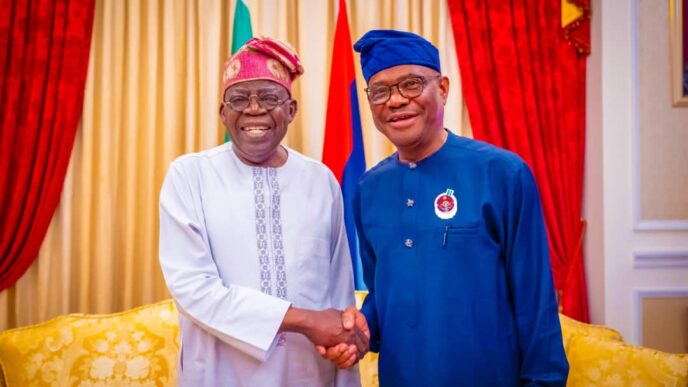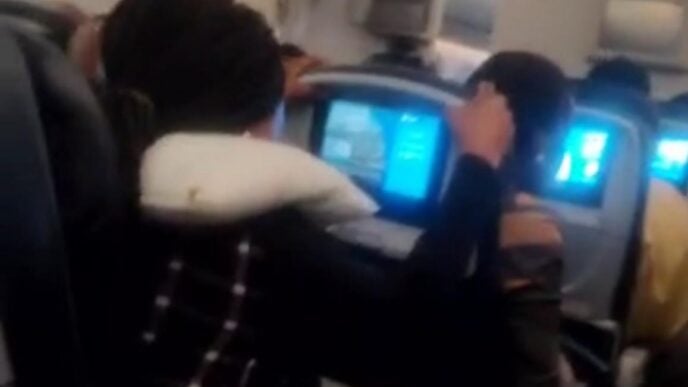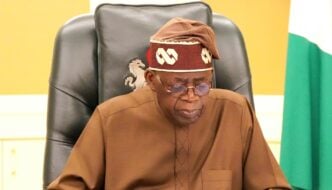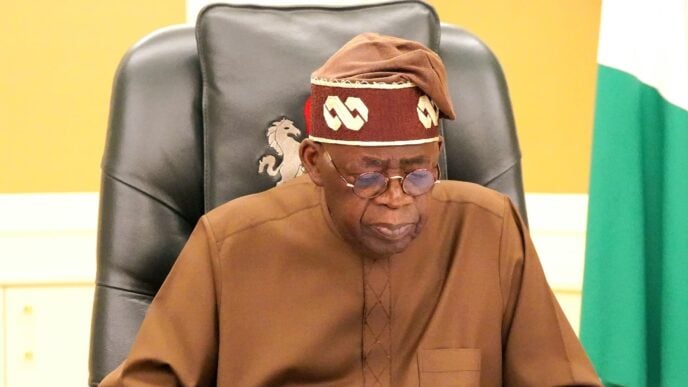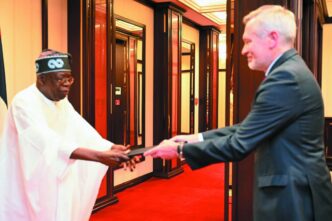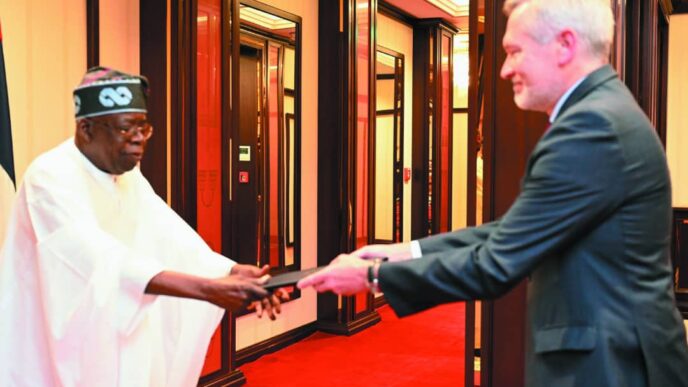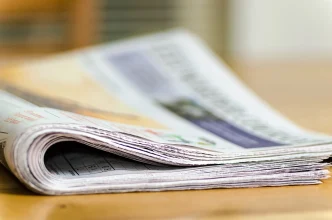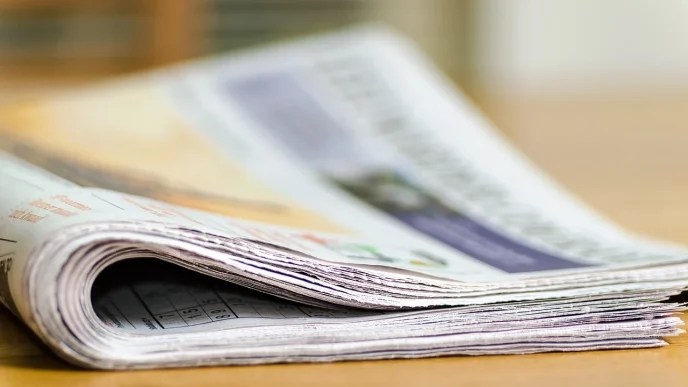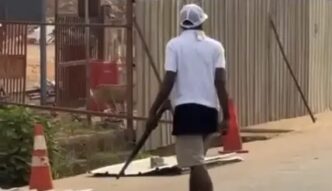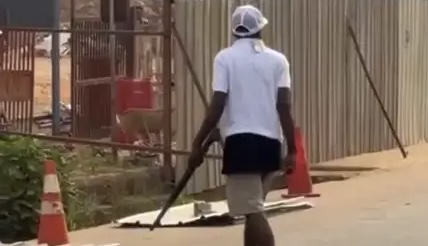Leno Adesanja, promoter of Sunrise Power
Sunrise Power’s hopes of securing a $2.35 billion award against Nigeria in the arbitration proceedings at the International Chamber of Commerce (ICC) over the disputed Mambilla hydropower project were badly hit during ongoing hearings in Paris, France, TheCable understands.
While Nigeria was defended by former presidents Olusegun Obasanjo and Muhammadu Buhari as well as former ministers Babatunde Fashola and Suleiman Adamu who testified as factual witnesses, those who had been listed as witnesses by Sunrise did not show up.
The panel sittings started on Saturday, January 18, but the hearings from factual witnesses started on Monday, January 20, and ended on Thursday, January 23.
Obasanjo testified on Wednesday while Buhari took his turn on Thursday.
Advertisement
The sittings continue till next week but only expert opinions are still being taken.
The parties to the arbitration will then submit written submissions to the tribunal, after which they will get a date to adopt the addresses.
The tribunal will thereafter pick a date to announce its determination.
Advertisement
Arbitration hearings are bound by a confidentiality rule and are not meant to be reported in detail in the media.
HEAVYWEIGHT WITNESSES
Getting two former presidents to testify for Nigeria was a masterstroke — in the opinion of those familiar with the proceedings.
TheCable understands that Obasanjo and Buhari testified “strongly”, “frankly” and “unequivocally” that the award of the contract to Sunrise in 2003 was without valid approval and the 2020 settlement agreement also lacked legitimacy.
Advertisement
Fashola, who was minister of power from 2015 to 2019, testified along with Adamu, minister of water resources from 2015 to 2023.
Both former ministers reportedly articulated their testimonies on the loopholes that question the processes that produced the original contract as well as the settlement agreement now in dispute.
Witnesses were also called to give expert opinions on the differences between corruption in the West and Africa.
Sunrise is trying to argue that the payments traced to government officials were not bribes but African cultural obligations.
Advertisement
Nigeria presented an expert from the US while Sunrise fielded one from South Africa.
SUNSET FOR SUNRISE
Advertisement
For Sunrise, promoted by Leno Adesanya, its key witnesses failed to show up to adopt their statements, meaning their submissions are deemed abandoned and of no moment.
Olu Agunloye, the minster of power who awarded the contract to Sunrise in 2003 a day after it was turned down by the federal executive council (FEC), was listed as a witness but he did not show up.
Advertisement
He is currently being tried by the Economic and Financial Crimes Commission (EFCC) for his role in the saga.
Michael Aondoakaa, former attorney-general of the federation (AGF) who was also listed as a witness by Sunrise, showed up briefly in Paris and returned to Nigeria without testifying.
Advertisement
He has since denied claims that he was under duress from the Nigerian government to withdraw from the arbitration. This could have been argued as witness intimidation before the tribunal by Sunrise.
A third key witness — a Senegalese lady allegedly offered to Abubakar Malami, Buhari’s AGF, to induce him to sign the 2020 settlement agreement — also failed to show up to defend Sunrise.
TheCable understands that Malami, who had earlier submitted a witness statement which Sunrise was hoping to use against him at the tribunal, did not take the stand.
Malami instead lined up behind Buhari to prepare him for the testimony.
This ensured Buhari’s testimony was “successful” and also pulled the rug from under Adesanya’s feet, those familiar with the proceedings told TheCable.
Adesanya was the only one who testified for his company.
THE MAMBILLA SAGA
Sunrise had, on October 10, 2017, started arbitration against Nigeria at the ICC International Court of Arbitration seeking a $2.354 billion award for “breach of contract” in relation to a 2003 agreement to construct the 3,050MW plant in Mambilla, Taraba state, on a “build, operate and transfer” basis valued at $6 billion.
In the second arbitration, the company is asking for a $400 million settlement being the terms of the Nigerian government failing to honour the settlement agreement both parties entered into in 2020 to end the arbitration.
In an interview with TheCable in 2023, Obasanjo challenged his former minister of power, Olu Agunloye, to tell Nigerians where he derived the authority to award the contract to Sunrise in 2003.
“When I was president, no minister had the power to approve more than N25 million without express presidential consent. It was impossible for Agunloye to commit my government to a $6 billion project without my permission and I did not give him any permission,” Obasanjo told TheCable.
“If a commission of inquiry is set up today to investigate the matter, I am ready to testify. I do not even need to testify because all the records are there. I never approved it.
“When he presented his memo to the federal executive council (on May 21, 2003), I was surprised because he had previously discussed it with me and I had told him to jettison the idea, that I had other ideas on how the power sector would be restructured and funded.
“I told him as much at the council meeting and directed him to step down the memo. I find it surprising that Agunloye is now claiming he acted on behalf of Nigeria. If I knew he issued such a letter to Sunrise, I would have sacked him as minister during my second term. He would not have spent a day longer in office.”
Buhari, on his part, denied authorising the settlement agreement of 2020.
“While I understood that my ministers of justice, power and water resources were approached by Sunrise and were engaging with various stakeholders that were involved in the project to resolve the issues blocking the project’s implementation, at no time did I specifically instruct them to enter into and conclude any settlement agreement with Sunrise Power and Transmission Company Limited,” he wrote to Fagbemi.
“Indeed, when the proposed settlement agreement and addendum were presented to me for my consideration and approval on 20th April 2020, I refused to approve the settlement deal because I was convinced that there was no basis for Sunrise’s claim.
“I hope the above clarifications will assist you in your defence of our country from these ‘invisible contractors who all too often quietly take Nigeria for many millions in out-of-court settlements’, as I stated in my recent statement regarding Nigeria’s victory in the P&ID saga.”
Add a comment
